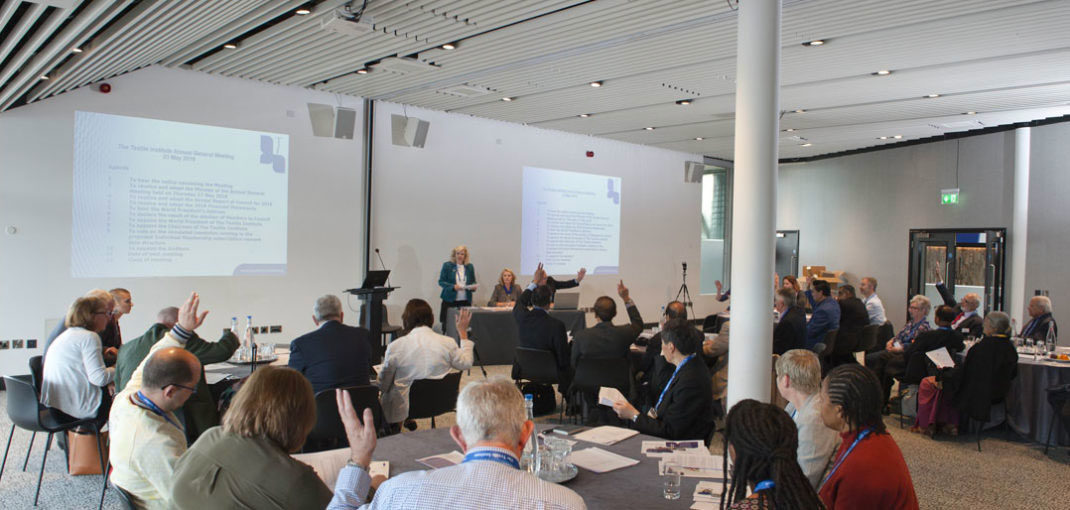Governance & Royal Charter
The Textile Institute was was inaugurated in 1910, incorporated in England by a Royal Charter granted in 1925, and is a registered charity. The Council is the Institute’s international governing body and is composed of nominees from the duly constituted Section, National & Regional Committees, and an equal number of members elected by the membership at large.
The constitution of Council and the conduct of elections to it are closely governed by the Institute’s Charter and Byelaws.
The organisation is a charitable incorporated organisation registered as a charity on 11 November 1963 in England and Wales. The charity is constituted under a constitution date of 1925. The Charter, which was last updated in 1995, governs the constitution of the Institute and is continually being reviewed in order accurately to reflect the current activities of the Institute.
The Textile Institute is run democratically by and for its members all over the world by its Council, the Trustees of the Institute, and representatives from Sections and Special Interest Groups.
The trustees are members of the Council but this entitles them only to voting rights. The trustees have no beneficial interest in the charity. All trustees give their time voluntarily and receive no benefits from the charity.
It is from amongst its members that Council normally selects future Chairmen, Vice-Chairmen, Honorary Secretaries, Honorary Treasurers, and members of certain committees. It is important to ensure that Council is fully representative, so that it guides the Institute’s development in a way that reflects the wishes of its membership.
As part of its programme, the Council carries out a full risk assessment of the Institute and its affairs, which is ongoing and illustrates the sound governance of the Institute. As part of the Institute’s management, other good practices have been updated or instigated, for example a clear and comprehensive Staff Handbook, Register of Interests, Risk Assessment of TI events and those partnered with Sections/Special Interest Groups and external bodies and a Council Handbook.
Charity trustees are the people who serve on the governing body of a charity. They are responsible for the general control and management of the administration of a charity.
Charity trustees come from all walks of life, and are united by their wish to create positive change in society. Most people are eligible to serve as trustees. The work of a Textile Institute trustee should be rewarding and enjoyable, and an opportunity to serve the textiles community worldwide.
Subject to the provisions of the Royal Charters and these Bye-laws, the Council may appoint Committees from amongst itself and may delegate any of its powers to such Committees. It may also in furtherance of other objects of the Institute, appoint Committees composed wholly of members of the Council or of Voting Members, or partly of members of the Council and partly of Voting Members and may fix the quorum and make rules for regulating the proceedings of any of the Committees.
The Council shall by resolution from time to time as it shall deem fit, declare which of its committees shall be Standing Committees. An elected member of the Council shall serve on each Standing Committee and shall be responsible for ensuring that the work of the Committee is in accordance with the Royal Charters and these Bye-laws, and the policy of the Institute, and for keeping the Council informed of the views of the Standing Committee.
The Textile Institute currently has 5 active Standing Committees operating out of the International Headquarters which represent the core competence of the organisation. These committees are Events, Medals and Awards, Membership, Professional Qualifications and Publications. Unless the Council otherwise decides, Standing Committees may appoint their own secretaries who shall record minutes of the proceedings which will be reported to Council as appropriate.
Chairman, Dr Xiaogang Chen CText FTI
Terms of Reference Statement
For the smooth running of events in the future and for events to remain as a significant benefit to the membership and industry, a clear structure and system is required. It is vital that a robust system of approving events is in place to ensure quality of events carrying the TI logo and to ensure that the TI logo and name is not damaged in any way by an event.
Meetings will be held by the Events Committee to assess applications and approve licenses for both internal and Textile Institute partnered events.
Chairman, Barbara Waters CText FTI
Terms of Reference
The focus of the committee is to communicate the benefits of membership (Individual and Corporate) worldwide and to meet member and potential member needs, demand and perceptions whilst responding to the various changes in the textile industries. Key groups by location and specialism will be identified to successfully target through detailed member and market analysis.
Chairman, Dr Simon Harlock CText FTI
Terms of Reference Statement
Under the authority of the TI Council, Professional Qualifications are conferred upon individuals and organisations.
TI members can apply for Professional Qualifications which recognise their academic and/or industrial experience.
Institutions can apply for accreditation or approval of their courses to indicate programme quality and provide a fast-track route to TI Professional Qualifications for their students.
Seven members of this committee shall be a quorum but in no case shall any resolution be deemed to have been passed unless at least six members shall have voted in favour thereof.
Chairman, Prof David J Tyler CText FTI ACFI
Terms of Reference Statement
Under the authority of the TI Council, a number of Medals and Awards are conferred upon individuals and Companies in recognition of their outstanding contribution to the textile industries and/or the work of The Textile Institute itself. The awards are for both members and non-members and cover the scope of both industry and academia fulfilling the Institute’s aims and purpose as per the Charter.
Prof Richard Murray Comp TI CText FTI
Terms of Reference Statement
The overall responsibility of the Publications Committee of The Textile Institute is to provide oversight of the selection, quality, publication timelines and business issues (including management of electronic archives) for the publications that bear The Textile Institute Seal, or are published directly by the Institute or in its name by association.
Join the world’s leading professional textiles body.
Join us and be part of an international, professionally diverse network of members and meet like-minded individuals whilst enhancing your skill set.




